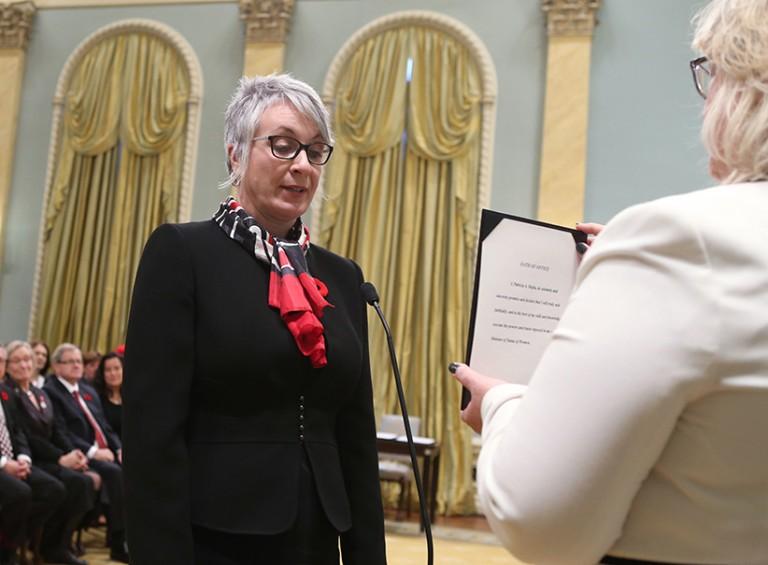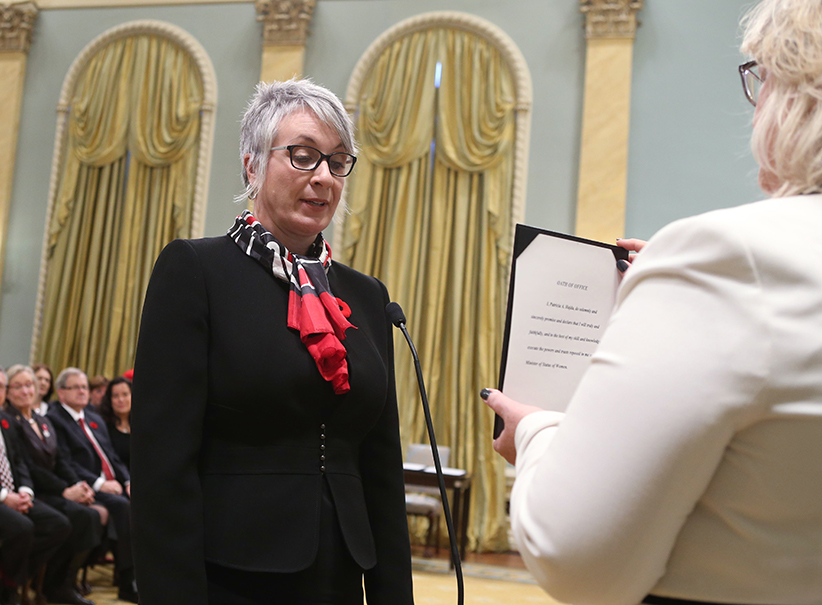Patty Hajdu on the search for gender equality
The Status of Women minister says gender equality makes for good fiscal policy

Canada’s new Status of Women Minister Patricia Hajdu is sworn-in during a ceremony at Rideau Hall in Ottawa November 4, 2015. Chris Wattie/Reuters
Share

Patty Hajdu’s job took on immediate prominence when her boss, Prime Minister Justin Trudeau, appointed as many women as men to his cabinet. That’s because Hajdu is Trudeau’s Status of Women minister, a position that brands her a leading federal politician on the topic of gender equality. That’s not to suggest Trudeau shies away from raising the issue. He told a global audience at the World Economic Forum that men should proclaim themselves feminists and fight for equality, and he repeated that call on his first trip to Washington, D.C.
As Ottawa celebrated International Women’s Day on March 8, Trudeau handed his Twitter account over to female cabinet ministers who each highlighted lingering gender inequality in their portfolios. Hajdu spoke about a lack of gender parity across the Globe.
It may be 2016, but our work to achieve parity is far from complete. @PattyHajdu #IWD2016 #PledgeforParityhttps://t.co/PxoCds2mKP
— Justin Trudeau (@JustinTrudeau) March 8, 2016
In a conversation with Cormac MacSweeney, Parliament Hill bureau chief for CityNews and Rogers Radio, Hajdu insisted that gender equality pays off when businesses fill leadership roles with women. “It’s really more than social policy,” she says. “It’s good fiscal policy to make sure we have gender equality in the private sector as well as the public sector.” Hajdu pointed to studies that suggest businesses whose leaders include women see a boost in earnings potential.
International Women’s Day also marked a launching point for public consultations on the face of Canada’s next bank note. That face will be a woman’s, and Hajdu offered hints about who she’d like to see on the short list. “I think that there are a lot of Indigenous women that would make excellent representation of the contribution that Indigenous people have made to our country,” says Hajdu. “I’m hoping that Indigenous communities will participate and submit names of leaders they know of in their communities.”
This segment first aired on Maclean’s on the Hill, the weekly politics podcast produced by our Ottawa bureau. Click here for the rest of this week’s episode—and check out our back issues here.
Related from macleans.ca: